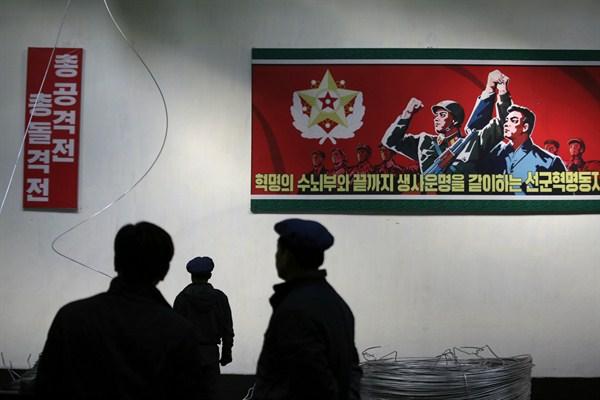The world is currently trying to figure out what China might be doing, saying and thinking about North Korea. Observers looks for signs in Chinese state media that Beijing might finally cut Pyongyang off financially and politically. They scrutinize shipping traffic to parse whether the flow of oil and coal between North Korea and China might be diminishing, with potentially disastrous results for Kim Jong Un’s regime. With a new president in South Korea, debates will continue about how Seoul can convince China to use its leverage on Pyongyang to get it to freeze its nuclear weapons program.
There should be no doubt that China has the means to crash the North Korean economy, if it wants to. North Korea is not as closed off from the world as some might think, but it has very few trade partners. China accounts for the vast majority of North Korea’s international trade. Those relatively few North Koreans who are fortunate to own cars saw this with their own eyes last month, as fears that China would decrease exports of oil sent gasoline prices skyrocketing by as much as 83 percent. Even rumors of Chinese action can spark drastic price shocks in North Korea.
Yet this focus on China misses a crucial part of the bigger picture. China may have a North Korea problem, but North Korea has a China problem, too. Policymakers in Pyongyang are acutely aware that their dependence on a single geopolitical ally and trade partner leaves North Korea’s economy deeply vulnerable to outside pressure. As North Korea’s state publications often imply, this runs counter to the country’s ideology of self-reliance. Over the past few years, Kim’s regime has worked hard to diversify its economic relations, but with little success.

